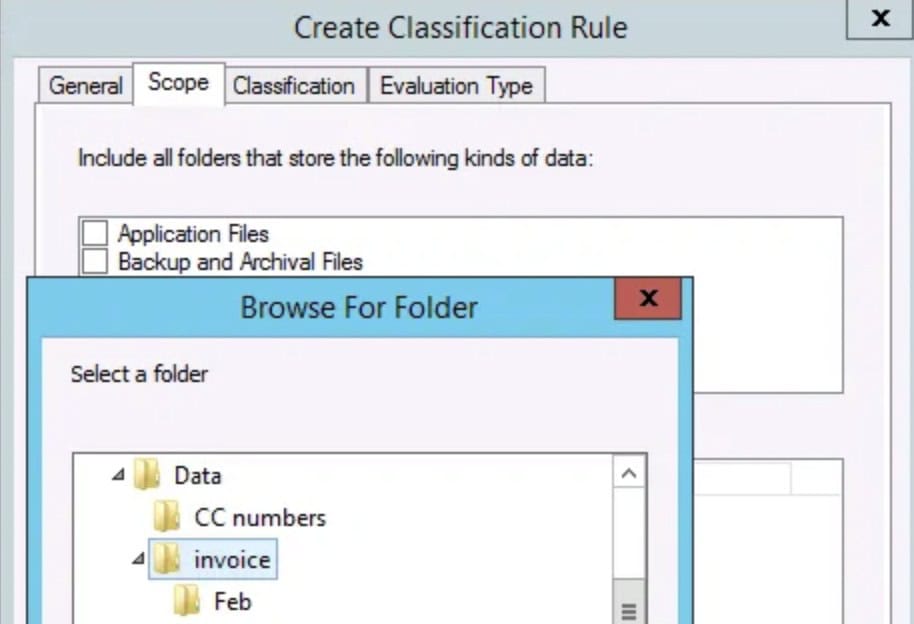
Scenario:
Corporate policy states that sales employees should not be storing customer credit card information especially credit card numbers on the file servers. As the administrator of the file sever you have been tasked with locating any files that have what look like suspected credit card numbers based on known numerical stings. You want to automate the process and classify the card based off of vender.
I will be classifying the files based on the following expressions:
Visa / Master Cards – ####-####-####-####
American Express – ####-######-#####
Let’s get started.
For testing purposes you will need to create a directory structure that contains files that meet the query criteria.
1. Launch the File Server Resource Manager from the Tools dropdown menu in Server Manager.
2. Expand Classification Management.
3. To create a classification property either Right click on Classification Properties and click on Create Local Property or select Create Local Property in the Actions Panel
4. In the Create Local Classification Property dialog box, give the property a Name, I will be naming mine Credit Card Numbers. In the Properties type drop box select Yes/No click OK.
5. To create a classification rule Right click on Classification Rules and select Create New Rule or select Create Classification Rule in the Actions pane.
6. On the General tab of Create Classification Rule type the desired name, click Scope tab.
7. On the Scope tab click Add, then browse to the appropriate directory structure, click OK, then click the Classification tab.
8. On the Classification tab, verify Content Classifier it selected and Credit Card Numbers is selected in the Property drop dropdown box. Select Configure.
9. We will be creating a Regular expression that represents a credit card number. In this case I will be using the expression:
\d{4}-\d{4}-\d{4}-\d{4}
Note: The above expression “\d” variable for digits and “{4}” defines the number of digits.
Then click OK
10. On the Evaluation Type tab, select Re-evaluate existing properties values and select the Overwrite the existing values and check both the Clear Automatically Classified Properties and Clear User Classified Properties. Then click OK
Repeat Steps 5 through 10 to create a Classification Rule for American Express Cards numbers if desired.
Once the Classification Rules have been created use the following steps to execute the rules.
1. Inside of the FSRM Right click on Classification Rules and select Run Classification With All Rules Now or select Run Classification With All Rules Now from the Actions pane.
2. Depending on the number of files that need to be evaluated choose whether or not to wait for the classification to finish. I will be choosing to wait click OK
3. The following screen shot show the files that were classified as containing possible credit card numbers. It also Identifies the Classification Rule that was used to Classify the document.
At this point you could use FCI File Management Tasks to move or set permissions on the files.
Related blogs that will show you how to use the FSRM to classify files, move files and or set RMS Encryption on the discovered files.
Installing FSRM.
Using FSRM to move documents that contain sensitive information such as Credit Card Numbers to a more secure location.
Using FSRM to implement RMS Encryption on files that contain sensitive information such as Credit Card Numbers.
Until next time … RIDE SAFE!
Rick Trader
Windows Server Instructor – Interface Technical Training















